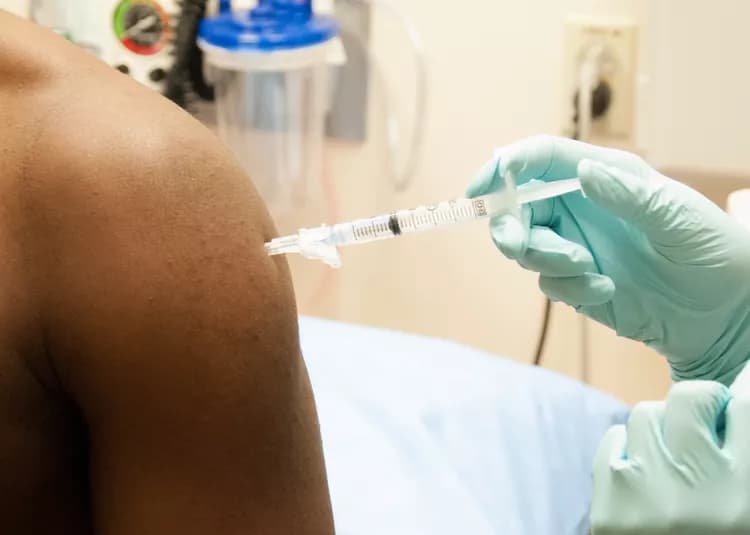
New Process May Lead To Vaccine For Schistosomiasis
Cornell and Ludwig Institute for Cancer Research scientists have developed a way to produce a protein antigen that may be useful as vaccine for schistosomiasis -- a parasitic disease that infects millions of people, mostly in tropical and subtropical climates -- according to new research in the journal Protein Expression and Purification, June 2017.
If clinical trials succeed, this vaccine may lead to a substantial decrease in the global number of schistosomiasis cases, which rank second only to malaria. The vaccine may have the added benefit of potentially reducing the incidence of bladder cancer.
Carl Batt, Cornell's Liberty Hyde Bailey Professor in Food Science, and colleagues Leonardo Damasceno, Ph.D. '08, of the Hertape Animal Health group in Brazil, and Gerd Ritter, of the Ludwig Institute for Cancer Research, established and refined the production of the antigen Sm14, using a microbial host. Sm14 holds promise to stimulate an immune response in humans, serving as a potential preventative vaccine for schistosomiasis.
"There is an association between parasitic infections and the occurrence of subsequent cancers. Schistosomiasis is not only a chronic disease but infected individuals have an enhanced propensity to get bladder cancer," said Batt. "If you immunize people with an antigen that induces an immune response against schistosomiasis, there will likely be benefits not only in controlling the immediate infection but also a means to avoid bladder cancer."
Schistosomiasis is caused by parasitic worms called Schistosoma mansoni, generally found in fresh water in lakes and rivers around the world, notably Africa and South America. The parasite is not found in the United States, according to the World Health Organization (WHO) and the U.S. Centers for Disease Control and Prevention.
Both adults and children are susceptible to the disease. Schoolchildren -- when they fish, swim or play in schistosoma-infested water -- are particularly vulnerable to infection. WHO estimates that about 240 million people worldwide are infected and more than 66.5 million were treated for the disease in 2015.
"Ideally your immune system should rebuff these parasites, but they have the ability to suppress the human immune response. Thus, the worms avoid being killed by the immune system and they eventually target the human liver," said Batt. "There is a very strong association between bladder cancer and a previous schistosomiasis infection."
If the medical world aims to prevent schistosomiasis, then it makes sense to immunize people against the parasite, said Batt.
The second phase of clinical trials of the vaccine are underway in Brazil, conducted by Orygen Biotecnologia SA, and the Infectious Disease Research Institute, Seattle. The research, "Process Development for Production and Purification of the Schistosoma mansoni Sm14 Antigen," was funded by the WHO through a collaboration between the Ludwig Institute for Cancer Research and Fiocruz, a Brazilian governmental scientific research agency.
Materials provided by Cornell University. Original written by Blaine Friedlander. Note: Content may be edited for style and length.
Disclaimer: DoveMed is not responsible for the accuracy of the adapted version of news releases posted to DoveMed by contributing universities and institutions.
Primary Resource:
Damasceno, L., Ritter, G., & Batt, C. A. (2017). Process development for production and purification of the Schistosoma mansoni Sm14 antigen. Protein Expression and Purification, 134, 72-81. DOI: 10.1016/j.pep.2017.04.002
Related Articles
Test Your Knowledge
Asked by users
Related Centers
Related Specialties
Related Physicians
Related Procedures
Related Resources
Join DoveHubs
and connect with fellow professionals

0 Comments
Please log in to post a comment.